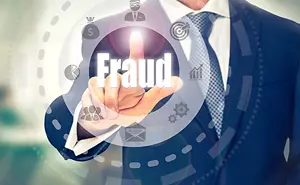Recent Posts
Popular Categories
Contributors
- Partner
Archives
Early in our democracy, the government recognized the importance of incentivizing private citizens to report government fraud and abuse. The False Claims Act was enacted during the Civil War to help catch and punish contractors supplying the Union army with shoddy goods. Qui tam, or whistleblower actions under the False Claims Act, put a civilian in the place of the government and permit actions on the government’s behalf. Whistleblower laws not only permit a percentage-based recovery for that individual if the action is successful, but protect the whistleblower from ...
As discussed earlier, the wire fraud statute can be used to impose punishment for each wire transmission that relates to a scheme to defraud. Is there a government interest in protecting us from deceitful wire transmissions and preserving the internet for virtuous intentions? Any amount of time spent on any social media platform should answer that question for you. The interest is protecting the public against schemes to defraud, and the use of wires is the jurisdictional hook—the interstate component of the crime that enables the federal government to prosecute. The crux of the ...
The federal wire fraud statute is one of the broadest and most utilized tools for punishing fraudulent conduct. After Congress enacted the mail fraud statute (making it illegal to use U.S. mail to perpetrate a fraud), it adopted a similar statute to capture the use of wire transmissions to further a fraud. At the time – 1952 – “wires” mostly constituted the telephone, with some radio and television transmissions. Today, it encompasses all cellular and internet transmissions as well.
A fraud scheme on its own is not necessarily a federal offense. In order for the U.S. government ...
We’ve explored identity theft in this blog before and we are seeing increasing investigations into health care fraud, so I want to take the opportunity to examine the intersection of these two topics.
Recently, the Fifth Circuit issued an opinion in United States v. Dubin, 982 F.3d 318. In this case, the defendant and his son were convicted of defrauding Texas’s Medicaid program. Mr. Dubin (senior) was a licensed psychologist who owned his own practice, and his son provided business services. The practice began providing Medicaid-covered services to a youth shelter and Mr. Dubin ...
Federal prosecutors continue to crack down on doctors who unlawfully distribute controlled substances. While typically exempt from prosecution for the distribution of drugs, doctors can find themselves on the wrong side of the law when their actions are not for legitimate medical purposes and within the usual course of their medical practice.
Courts typically engage in a case-by-case analysis to determine whether a doctor’s prescribing has crossed the line. Questionable practices can include patients traveling long distances while bypassing numerous other physicians; ...
A target letter is a letter from the U.S. Attorneys Office informing you that you are a target of an ongoing investigation. If you are a target, then the government has reason to believe you have participated in a federal crime. Being a target is different than being a subject or a witness. A subject of an investigation is a person whose conduct is within the scope of a grand jury investigation. This is a level of accusation below target, but nonetheless must be taken seriously. If you have been identified as a witness, then the government believes you may have information relating to an ...
Lawyers in white collar cases typically fill the role of either prosecutor or defense attorney. Occasionally, they also play the part of the criminal defendant, which is what happened last week in federal court in Virginia in a highly unusual case.
Attorney Timothy Litzenburg, age 38, of Charlottesville, admitted to attempting to extort hundreds of millions of dollars from a U.S. chemicals manufacturer. Prosecutors charged Mr. Litzenburg with threatening financial and reputational harm to the company unless it paid him $200 million. Mr. Litzenburg had previously helped to ...
Tax season in America has a different schedule in 2020, with the deadline for filing having been pushed back until July due to COVID-19. This means that we all have a little more time to get our returns submitted to the Internal Revenue Service. However, for IRS criminal investigators, tax season is a year-round affair during which they relentlessly pursue those who fail to follow the law.
When I was a federal prosecutor, I relished working on tax cases and always gave them top priority. It was my duty to enforce the tax laws in order to preserve the integrity of the tax system and to deter ...
Criminals continue to exploit the fear and uncertainty created by the COVID-19 crisis by engaging in targeted cyber attacks upon businesses in the United States.
According to the FBI’s Cyber Division, network security tools of health care providers recently identified a series of email phishing attacks. The subjects of these emails contained topics related to COVID-19 and had malicious files attached to them which, if opened, could have deployed ransomware or implanted malware to steal personal and financial data.
The attachments were Microsoft Word documents, 7-zip ...
Large-scale crises yield large-scale humanitarian responses — from international volunteer efforts and mobilization of national aid organizations to very local and mostly unrecognized community actions. Every day, I hear of people checking in on elderly neighbors, offering to help each other with errands, and giving away highly-sought-after sanitation products. Unfortunately, just as sure as most people respond to a crisis with good intentions, there are those who see opportunity and will seize this moment to try to profit from the collective fears and chaos.
“Price ...










